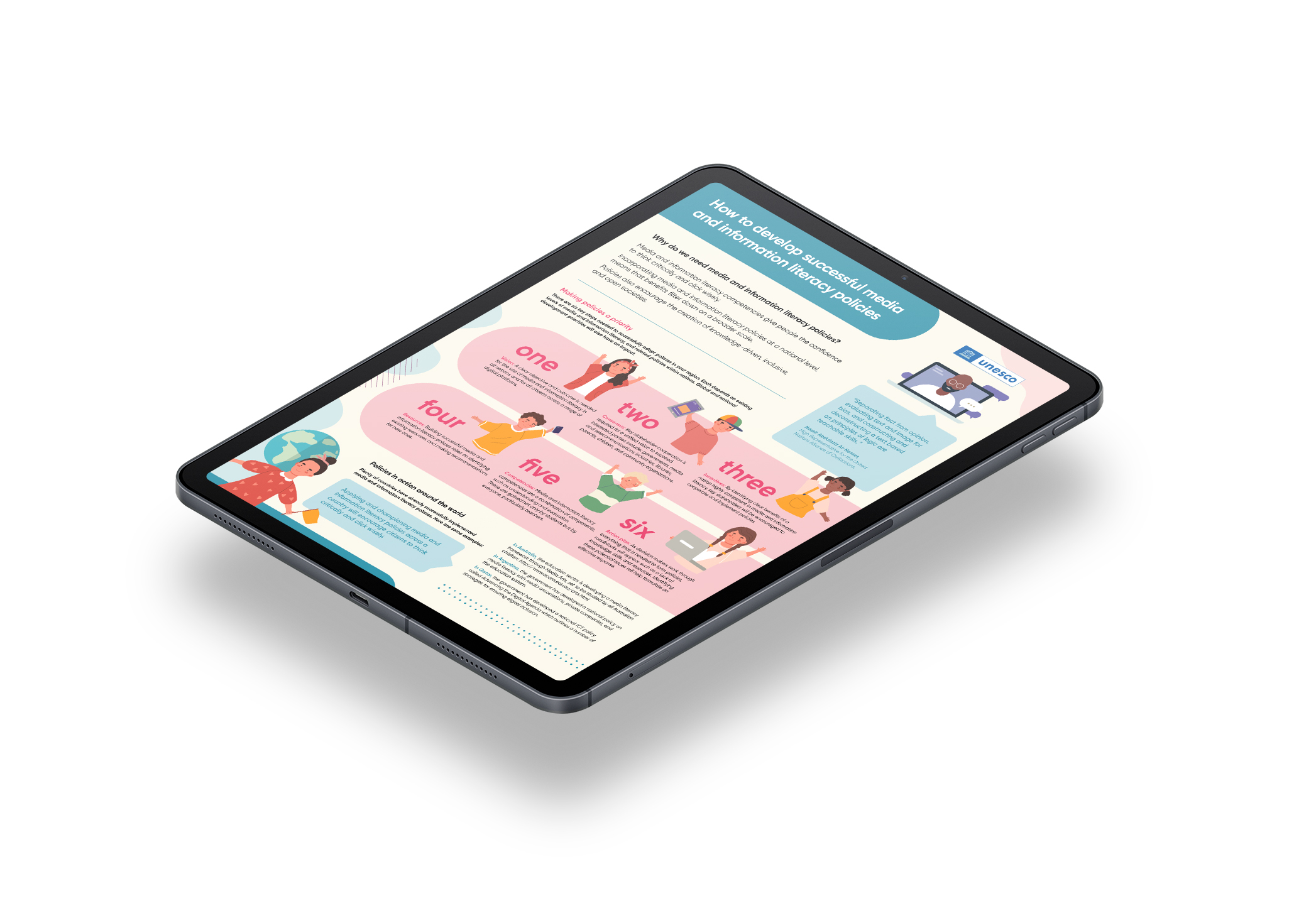Showing the world why Media and Information Literacy is a vital skillset
In Stats
25
Infographics
15
Videos
5
Podcasts
Key Results
280 mentions of UNESCO in relation to the MIL Curriculum and Global MIL Week
Over 600 attendees to the MIL Curriculum launch
More than 55,000 people reached on Facebook page
Tags
Date 21 April 2022
Showing the world why Media and Information Literacy is a vital skillset
Berkeley Communications was immensely honoured to partner with UNESCO, the world-renowned wing of the United Nations, promoting world peace and security through international cooperation in education, arts, sciences, and culture.
Media and Information Literacy (MIL) is a vital pillar of this. It helps people around the world to navigate the increased volume of content they are exposed to and use it for public good.
The problem
As technology gets ever more sophisticated, the amount of media and information readily accessible expands exponentially. Unfortunately, the knowledge to engage with and decipher this influx of content hasn’t grown inline with its availability, with content consumers and creators at different levels of literacy across the globe. This has allowed fake news, hate speech, sexism, racism, and more, to thrive in increasingly unregulated spheres.
This dynamic has been steadily building with the onset of mobile internet and smartphones, but it really came to the fore during the Covid pandemic, where false information had a direct impact on people’s lives and wellbeing.
The solution
Berkeley was brought on board to support UNESCO in elevating the value and core competencies of MIL across the globe, with the launch of the latest version of the MIL Curriculum for educators and learners underpinning all content and messages created.
The team at Berkeley developed a series of core content assets to cement the MIL message and provide UNESCO with the tools needed to disseminate much-needed support to individuals and stakeholders worldwide. Alongside this, we conducted a global media outreach programme and created compelling and insightful social media posts to engage and educate key audiences.






Assets and activities included:
- Creation and design of a 12-page document to create urgency and awareness around MIL and the new curriculum
- Creation and design of an eight-page executive summary document focusing on the work of the UNESCO MIL team across the globe and how individuals and stakeholders can get involved and make a difference
- Development of 25 infographics (from small social graphics to longer, more informative poster-style pieces) on a range of topics, from combatting gender inequality in the media, to understanding AI and how to spot fake news
- Development of 15 videos in multiple languages, to support the MIL message and entice people to get involved and find out more
- Production of five podcasts on a range of MIL-related topics, getting speakers and experts involved from across the globe to bring diverse opinions and insights to the table and create debate
- PR programme focussed on generating awareness of the MIL Curriculum and Global MIL Week across the globe, including creation and issue of five press releases to key media outlets
Results
As well as providing UNESCO with a set of engaging, insightful and shareable assets to help it make MIL become a reality across the globe, the Berkeley team secured 280 media mentions of UNESCO in relation to the MIL Curriculum and MIL Week across a six-month period.
Exposure across social media was huge: over 55,000 people were reached through Facebook posts; there were 364 mentions of UNESCO and MIL on Twitter; and over 4,300 engagements on UNESCO’s MILCLICKS Facebook page. Proactive media activity also resulted in attracting more than 600 attendees to the virtual MIL Curriculum launch.
